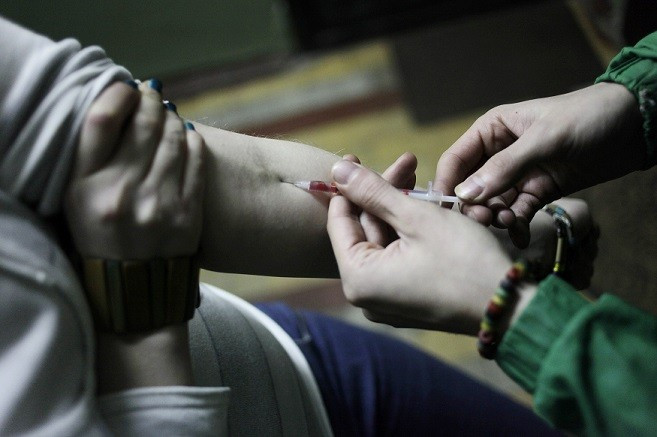West Midlands addicts to be prescribed heroin under bold plans to combat 'scourge of drugs'

KEY POINTS
- West Midlands police commissioner announces "fresh ideas" to tackle drug problems.
- Users offered heroin in drug consumption rooms and if other forms of treatment fail.
- Move welcomed as drug use increasingly considered public health issue rather than criminal.
Addicts could be given heroin under medical supervision in special consumption rooms as part of the West Midlands' plans to cut down on the "shocking number" of drug deaths in the region, it has been announced.
West Midlands Police and Crime Commissioner David Jamieson has set out a number of proposals aiming to tackle the costs of drugs to public services and reduce drug-related crime.
It is estimated that substance abuse in the west Midlands alone already cost £1.4bn a year to public services, with half of all burglaries, theft, shoplifting and robbery committed by people suffering from addiction to drugs including heroin and crack cocaine.
According to a recent report published by Jamieson, a drug user in the West Midlands dies every three days while organised criminals are "profiting from this misery".
As part of plans to divert those suffering from addiction "into treatment and away from the courts", Jamieson is hoping that drug users who have not responded well to other forms of treatment will be prescribed heroin in a medical setting, which will also provide users with clean needles, medical support and drug treatment services.
Jamieson said: "If we are to cut crime and save lives there's one thing we can all agree on; we need fresh ideas.
"These are bold, but practical proposals that will reduce crime, the cost to the public purse and the terrible harm caused by drugs.
"These proposals tackle the drugs market head on, hitting the organised criminals profiting from the misery of others.
"By the end of my term of office in 2020, I hope many of these proposals are in place and having an effect - reducing crime, but also the suffering of those addicted to drugs. These proposals will save the public sector money by reducing the strain on services that currently exists."
Shirley Cramer, chief executive of Royal Society for Public Health, said the recommendations are a welcome contribution to the "growing momentum behind common sense drug policy reform" in the UK.
She added: "Health professionals, police, and the public are all agreed that a public health - rather than criminal justice - approach to drug policy is what is needed to tackle rising rates of drug harm in this country and beyond.
"We know that diverting people suffering as a result of harmful substance use away from the criminal justice system and into treatment leads to better outcomes for the individual and for society, and we know that pragmatic harm reduction interventions such as drug consumption rooms, heroin assisted treatment and drug safety testing can play an extremely helpful role in that process."

Niamh Eastwood, executive director of human rights group Release, said that the consideration of drug consumption rooms [DCR] is "rooted in evidence and must be welcomed".
She added: "By providing a safe and sterile place for people to use drugs, DCRs can save lives, provide treatment access, reduce strain on emergency services, and make the streets safer for everyone.
"DCRs are already saving lives in eight European countries, Canada, and Australia, and have been endorsed by the British Medical Association. Opioid-related deaths are now at a record high in the UK, and DCRs can help put a stop to this crisis.
"No one has ever died from an overdose in a DCR, anywhere in the world."
Similar ideas have also been urged in Durham and Bristol in order to reduce crime in the areas.




















